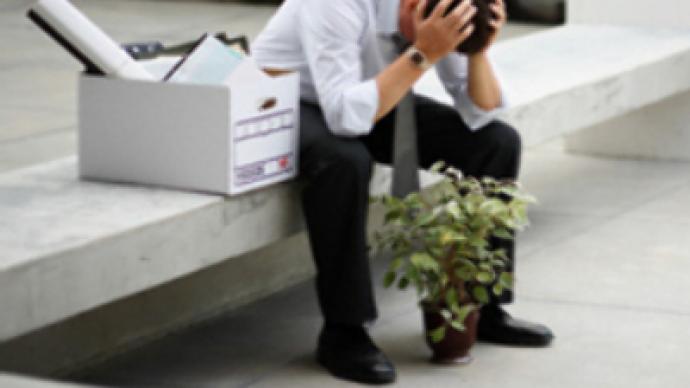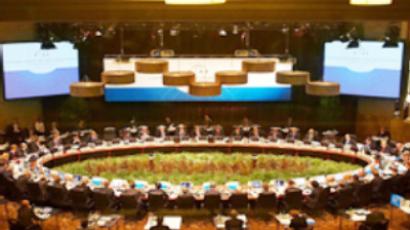Wednesday's press review

Russia’s newspapers on Wednesday carry an interview with an American political scientist on missile defense, talk to the Israeli prime minister about Iran, analyze Ukraine’s claim for the central role in providing European energy security and discuss the
KOMMERSANT has an interview with Dr. Leon Aron of the American Enterprise Institute who says that with Barack Obama as U.S. president Russia will not have to worry about the European elements of the U.S. missile defence system. The academic says missile defence or the expansion of NATO will not be a priority for the new administration, at least not for a certain period of time which may happen to be quite long. He also says that in the foreseeable future, US–Russian relations will not encounter major difficulties.
VREMIA NOVOSTEI publishes an interview with Israel’s Minister of Defence and former prime minister, Ehud Barak. The Israeli politician says that in his opinion negotiations with Iran on its nuclear programme are not yielding any substantial results. He says the religious Ayatollas of Iran cannot be persuaded to discontinue uranium enrichment by words alone. Barak thinks tougher sanctions are needed to make Iran more cooperative on the nuclear issue. He also says that the Iranian problem cannot be solved without Russia. He says that the current position of Moscow on Iran doesn’t give him any feelings of delight; however he believes that the Kremlin sees clearly the dangers of the Iranian nuclear programme, but at the moment needs Iran as an important chip in its geopolitical game. He says he told his counterparts in the US and Europe that solving the problem requires joint efforts of many countries and that they have to get rid of their attitude of suspicion towards Moscow and accept Russia as an equal partner.
NEZAVISIMAYA GAZETA has an op-ed article by Dr. Sergey Zhiltsov of the Diplomatic Academy of Russia who writes that Kiev is preparing to claim the role of guarantor of Europe’s energy security. Ukraine hopes to gain that status by supporting gas pipelines originating in the Caspian Sea region and going to the western part of Europe through Ukraine, bypassing Russia. The academic writes that this is a typical case of political interests prevailing over the interests of the economy. However, he says, Russia has been winning all ‘pipeline wars’ so far, not in the least because the cost of new pipelines is forbidding and as such will not be lightly accepted by the European Community. Especially in times of crisis, he adds.
IZVESTIA publishes an article by political scientist Viacheslav Nikonov, the president of the ‘Politika’ foundation. He writes that if the economic crisis has already hit the US, the UK and several countries of the Euro zone, what we see now in Russia is not yet a crisis of any kind but a mere slow-down of the economy. However it doesn’t mean that there’s no danger ahead, he adds. Nikonov predicts hard times for Russian companies which used to live mainly on the flow of cheap loan money from abroad. He says there will be more unemployment in Russia by the beginning of next year. But he also says that the drop in price of construction materials is a blessing in disguise: he reminds the readers that Russia has a chronic shortage of workers. So, he says, the smarter factory owners cut their expenses without cutting down their workforce. They, he writes, will be ready when the economy picks up momentum. The author writes that the main engine of crisis management in Russia should be increased investment to stimulate internal demand and supply. Nikonov concludes: Russia’s current policies do not mean that we are trying to build barriers against the influence of the world economy with its storms but that we are creating conditions to help ourselves: we do not want to be too dependent on the turbulence of the World market.
TRUD notes that the latest polls from the Russian Institute of Public Opinion Research show that for the first time in the Third Millennium, half of Russians believe that in the next 10 to 15 years Russia will again become a great World power.
Evgeny Belenkiy, RT













